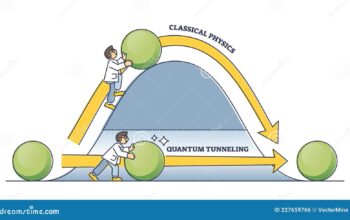In the exploration of the fundamental nature of matter, the inquiry into whether an atom possesses a soul or consciousness raises profound philosophical and scientific questions. Atoms, the basic building blocks of all matter, consist of protons, neutrons, and electrons, forming intricate structures that are pivotal to the universe. This discourse will investigate the essence of consciousness, delve into atomic behavior, and evaluate various philosophical perspectives that converge upon the enigma of consciousness at the atomic level.
1. The Nature of Atoms
Atoms are defined as the smallest units of an element that retain the characteristics of that element. Composed of a dense nucleus surrounded by a cloud of electrons, atoms exhibit remarkable complexity. The interactions among subatomic particles follow the principles of quantum mechanics, a field that challenges our conventional understanding of reality. As we delve into the—at times opaque—realm of quantum physics, we encounter probabilities rather than certainties, suggesting a degree of unpredictability in atomic behavior that is reminiscent of free will.
2. Defining Consciousness
Before addressing the question of whether atoms have a soul, it is imperative to clarify what consciousness entails. In philosophical terms, consciousness is often characterized by awareness of the self and the environment, as well as the ability to experience thoughts and emotions. Delving deeper, consciousness encompasses various interpretations, including phenomenal consciousness (the subjective experience of feelings and perceptions) and access consciousness (the ability to report mental states). These distinctions are paramount when considering the applicability of consciousness to inanimate entities like atoms.
3. The Philosophical Perspectives
The discussion surrounding consciousness extends into the realm of philosophy, where dualism and materialism present contrasting viewpoints. Dualists posit that the mind exists independently of the physical body, suggesting the possibility of a soul or an immaterial essence. In contrast, materialists argue that consciousness arises strictly from physical processes, negating the existence of a non-material soul. This dichotomy raises essential inquiries: If consciousness is emergent from complex systems, at what point does it arise? Could it, in any capacity, be present at the atomic level?
4. Quantum Consciousness Theories
Delving into quantum mechanics, some theorists propose radical ideas suggesting that quantum phenomena may underpin consciousness. Theories such as Roger Penrose’s orchestrated objective reduction (Orch-OR) theory posit that consciousness is a result of quantum processes within brain neurons, inferring a degree of subjective experience at molecular levels. If consciousness can emerge from complex organization within biological structures, this proposal tantalizes the notion that perhaps, in a broader sense, consciousness might be a fundamental aspect of reality, one that potentially permeates even the atomic realm.
5. Atoms as Part of a Larger Consciousness?
Another philosophical approach contemplates the notion of panpsychism, wherein all matter possesses some form of consciousness, albeit a rudimentary form. If the universe is viewed as a continuum of interconnected consciousness, then the individual atomic components could contribute to a collective awareness. This perspective invites a reconceptualization of atoms not as mere passive components, but as active participants in a grander tapestry of existence. Here, the atom transcends its mere physicality, possibly touching upon a primordial essence that vibrates at a frequency of awareness.
6. Scientific Counterpoints
While the exploration of consciousness and atomic behavior opens intriguing discussions, it is essential to consider the scientific counterarguments. Mainstream scientific paradigms often reject the notion of consciousness at the atomic level. The consensus generally posits that consciousness is an emergent property of complex biological systems, predominantly found within sophisticated neural architectures. Proponents of this view maintain that attributing consciousness to an atom reduces the nuanced characteristics of awareness to an absurdity, devoid of empirical grounding.
7. The Role of Consciousness in Human Context
The human experience of consciousness is distinguished not just by awareness but by intricate emotional landscapes and social interactions. It is a phenomenon that cannot be adequately described by isolated atomic behaviors but rather emerges from complex neural interactions and societal constructs. Thus, the inquiry into atomic consciousness often serves more as a reflection of humanity’s quest for meaning than as a scientific imperative. In this context, the question of whether an atom has a soul becomes an allegory for our desire to understand our essence and relation to the universe.
8. Conclusion
In summary, the examination of whether an atom possesses a soul or consciousness invites an intricate dialogue across scientific, philosophical, and metaphysical domains. While empirical evidence does not support the existence of consciousness at the atomic level, the profound questions surrounding this concept compel us to ponder the nature of existence and awareness itself. The intersection of science and philosophy thus serves as a fertile ground for ongoing exploration and reflection. Ultimately, whether through the lens of quantum mechanics, the philosophical inquiry of consciousness, or the ongoing pursuit of understanding our place in the cosmos, the considerations surrounding atoms, consciousness, and souls remain pivotal to our quest for comprehension.












